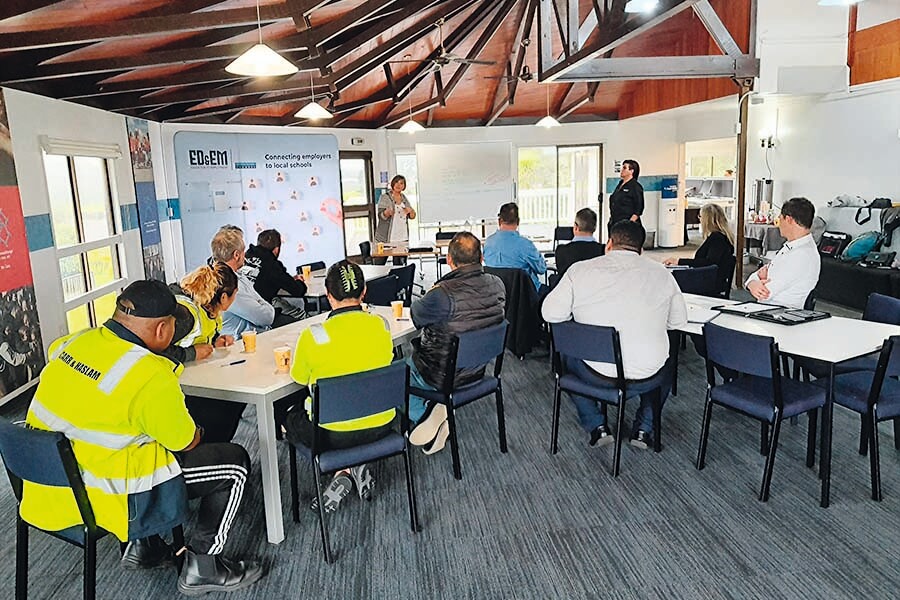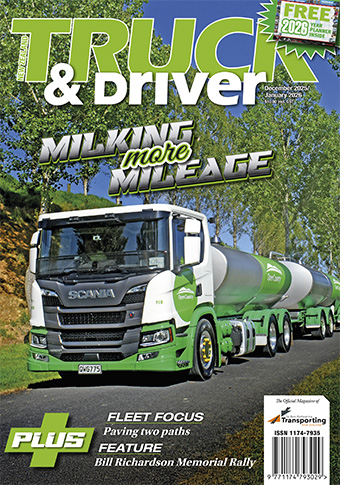Ia Ara Aotearoa Transporting New Zealand News


Creating a sustainable workforce for our industry
COVID-19 has taught businesses the world over the need for an open mind and agility…
And it’s clear that while many things will be forced to change, things are already returning to the way they were on the employment front for our industry.
New Zealand has a chronic shortage of workers. Partly this is because of the indefinitely closed border and aggressive immigration settings.
However, there are also other factors at play, says Te ara ki tua Road to success coordinator Fiona McDonagh: “Younger workers have a different set of expectations than what many of us are used to. Younger people entering the job market have different expectations from their parents – more options – and can therefore afford to be selective about what they go and do.
“Employers need to change quickly if they don’t want their businesses to be crippled by a shortage of workers. The first step is to make the decision to take on trainees to ensure sustainability of their workforce. For that they need to have some basics in place.
...COVID-19 has taught businesses the world over the need for an open mind and agility…
And it’s clear that while many things will be forced to change, things are already returning to the way they were on the employment front for our industry.
New Zealand has a chronic shortage of workers. Partly this is because of the indefinitely closed border and aggressive immigration settings.
However, there are also other factors at play, says Te ara ki tua Road to success coordinator Fiona McDonagh: “Younger workers have a different set of expectations than what many of us are used to. Younger people entering the job market have different expectations from their parents – more options – and can therefore afford to be selective about what they go and do.
“Employers need to change quickly if they don’t want their businesses to be crippled by a shortage of workers. The first step is to make the decision to take on trainees to ensure sustainability of their workforce. For that they need to have some basics in place.
“First of all, a trainee needs training. Some of that can and will be provided externally, but employers need someone in the company to train and/or mentor those new to the industry and wanting to learn all
they can.”
Through the Te ara ki tua Road to success traineeship, RTF is doing all it can to get enthusiastic new people into the road freight transport industry and place them with transport companies.
Since the programme launched in April, 36 transport businesses have signed up to it and are either already working with their trainee(s) or awaiting an appropriate match. The really good news is that 184 applicants have already signed up to become a trainee.
More than 80% of the businesses involved are located in the North Island, along with two-thirds of the trainees. The businesses operate in a wide range of sectors, covering Hiabs, containers, bulk goods, petroleum, logging, livestock, fresh produce, vehicle transport, waste and gas.
The trainees vary in age and experience: Some are young and new
to the workforce, while others are more mature, with a few more transferable skills.
In three months, 17 trainees have been placed into jobs – two with a Class 5 (licence), eight a Class 2, four with a Class 1 and three with a Class 4. Seven have come in off an MSD benefit and in eight cases the operators have brought in someone they want to start on a traineeship. The average age is 29 – with the youngest just 19 and the oldest 53 – and more than a third of the trainees are women.
Says McDonagh: “We’re well aware the industry isn’t interested in a band-aid approach to the supply of drivers, so our focus is on creating a sustainable career pathway that begins to address some of the underlying issues with the shortage. “We’re interested in quality trainees placed in the right companies that have a really good chance of working out.”
Something that has been identified is the lack of structure many businesses have in bringing through new staff and training them up. Too often the industry has relied on hiring drivers with Class 5 licences and extensive experience, she says.
“Our aim is to provide transport businesses with the skills to train their next generation of drivers and create a more sustainable model, based on loyalty and good business culture.
“We recently created the first stage of our trainee workbook and guide, designed to help create that structure and assist businesses to get the most out of trainees. Over the next two years we will be building a complete curriculum and guide for the industry. This can be adopted into businesses so they can alter their operations to meet the needs of trainees and new employees.”
If you want to find out more or register your business to take on a trainee, check out the website www.roadtosuccess.nz or contact us by email at success@rtf.nz or phone (04) 471 8283.



 + EQUIPMENT GUIDE - FREE
+ EQUIPMENT GUIDE - FREE
